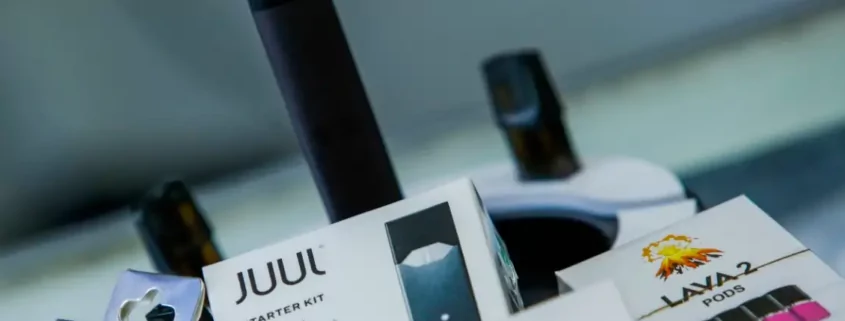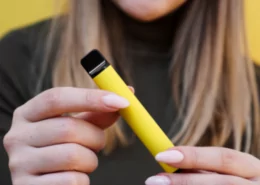Wider Availability of Vapes is A Solution to Reduce Cigarette Sales
We all know that smoking poses serious health risks. But what if there was a safer alternative? Recent Canadian research suggests that legalizing the sale of vapes to adult smokers in convenience stores may significantly reduce the sale of cigarettes.
The Canadian Vaping Study
In 2018, a popular pod vape, Juul, was introduced into the Canadian market. The research focused on tracking the sales of cigarettes post this event across 600 convenience stores. The impressive results revealed that around 38% of Juul users had successfully quit smoking after 6 months.
What’s more, the study observed that after the introduction of Juul, cigarette sales from these stores dipped by 1.65% per month over the initial few months. After half a year, the overall decrease in cigarette sales was about 10%. The trend suggested a potential long-term fall in cigarette sales, a promising prospect for public health.
Interestingly, during this period, vaping was not actively promoted in Canada. It leads us to wonder, what if it was? What if countries like the UK and New Zealand, where vaping is promoted, could potentially see an even faster decline in cigarette sales? Furthermore, introducing a wider range of vape products could cater to different user preferences, potentially increasing uptake.
Supporting Evidence from the US
Parallel research in the US corroborates this trend. The study identified that as e-cigarette sales surged, cigarette sales from retail outlets fell more rapidly. For every additional e-cigarette sold, there was a reduction of 1.4 cigarette packs. It seems that e-cigarettes are emerging as a formidable substitute for traditional cigarettes.
If we want to continue this positive trend, it’s crucial to make vapes available wherever tobacco is sold. This includes convenience stores, tobacconists, service stations, and supermarkets. If smokers encounter vapes while purchasing their regular cigarettes, they may be more inclined to switch to this safer alternative.
The Australian Case
In contrast, the situation in Australia seems counter-intuitive. Vapes are harder to access legally than cigarettes, despite being a safer alternative. Over 20,000 outlets sell cigarettes without any restrictions, save for proof of age. Isn’t it time for vapes to enjoy the same accessibility?
Read More:
Australia to Ban Non-Prescription Vapes in Biggest Vaping Reforms
In addition to traditional tobacco outlets, vape shops can play a significant role. They provide expert advice and support for users, thereby encouraging more smokers to switch. Pharmacies, too, could stock these products, given their widespread network and trusted reputation.
However, with wider availability comes the concern of underage sales. Australia’s strict restrictions on vaping have inadvertently fueled a burgeoning black market. Dodgy products sold to both adults and children by rogue retailers are a significant worry. Further prohibition seems to exacerbate the problem rather than solve it.
A possible solution lies in creating a legal, regulated market for vapes. A survey conducted by Roy Morgan reveals that 79% of respondents would opt for legal, regulated vape products from licensed retailers over black market options. Such a regulated market could largely replace the black market, making it less profitable.
Regulated Model and its Impacts
Under a regulated model, severe penalties and the loss of the license to sell these products await any retail outlets breaching age-of-sale norms. So, we face a choice. Do we want vaping regulated by dubious entities selling poor quality products to minors, or by licensed retailers offering high-quality products with stringent age verification?
Vapes are here to stay, and the trend seems irreversible. A legal market for vapes offers numerous benefits. It can generate taxation, stimulate the economy, and curb criminal activity. It seems clear which option is preferable.
Conclusion
As we have seen, the wider availability of vapes can indeed lead to a decrease in cigarette sales, as per the evidence from studies in Canada and the US. It’s high time that other countries, especially those with strict regulations like Australia, reconsider their stance on vaping. By making vapes more accessible and implementing strict age verification, we can ensure that this alternative helps adult smokers quit, rather than attracting new, young users.
- Malaysia Negeri Sembilan Backs Vape Ban, Awaits Clear Laws - August 5, 2025
- Is It Illegal to Vape or Smoke While Driving in Massachusetts? - August 5, 2025
- Austria Plans to Ban Disposable E-Cigarettes - August 5, 2025








